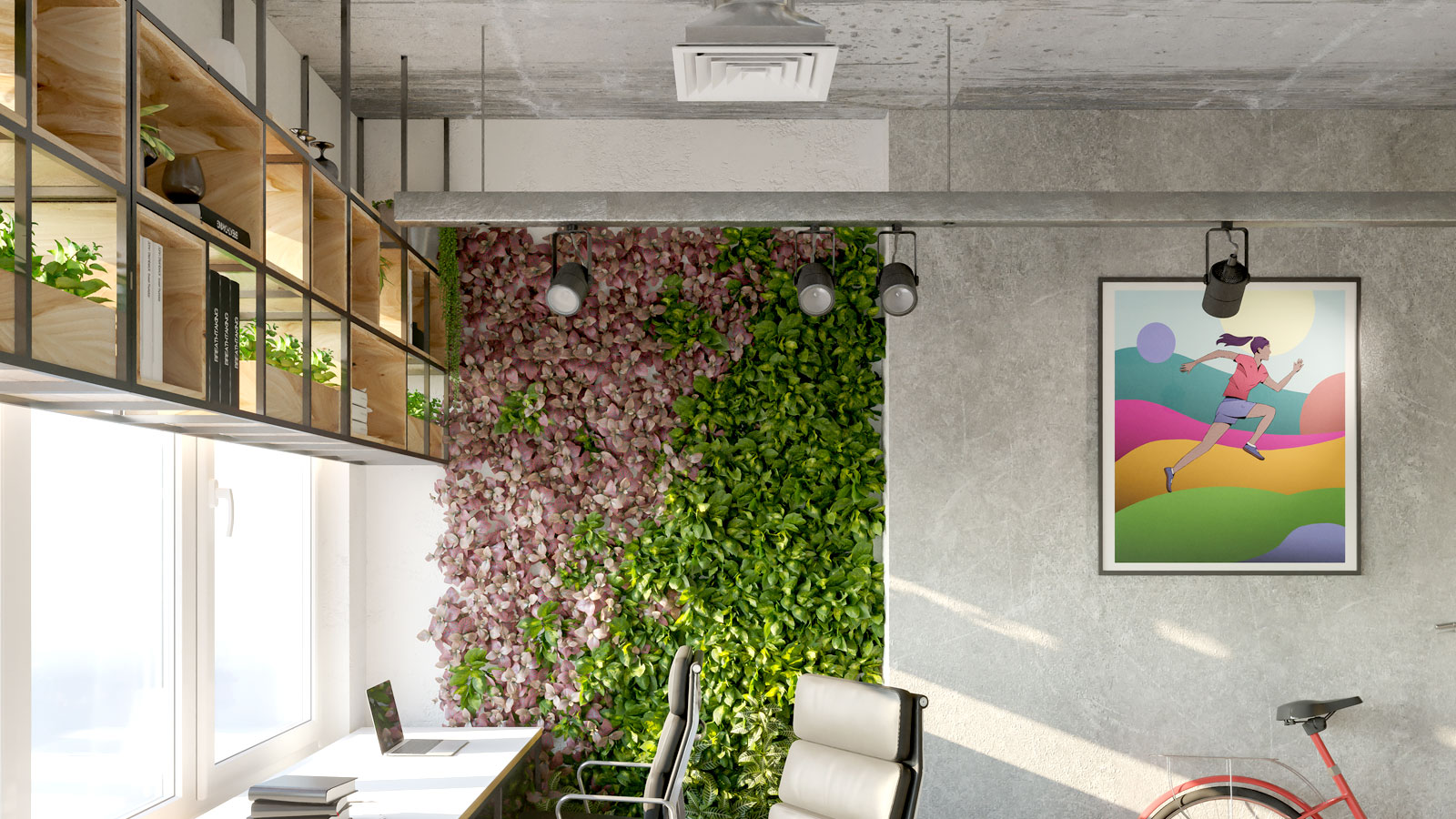10 utility room sink ideas: How to choose a basin to suit your space
Laundry, boot and utility room sink ideas all demand different sizes, budgets and materials — find out what to look for when designing your space
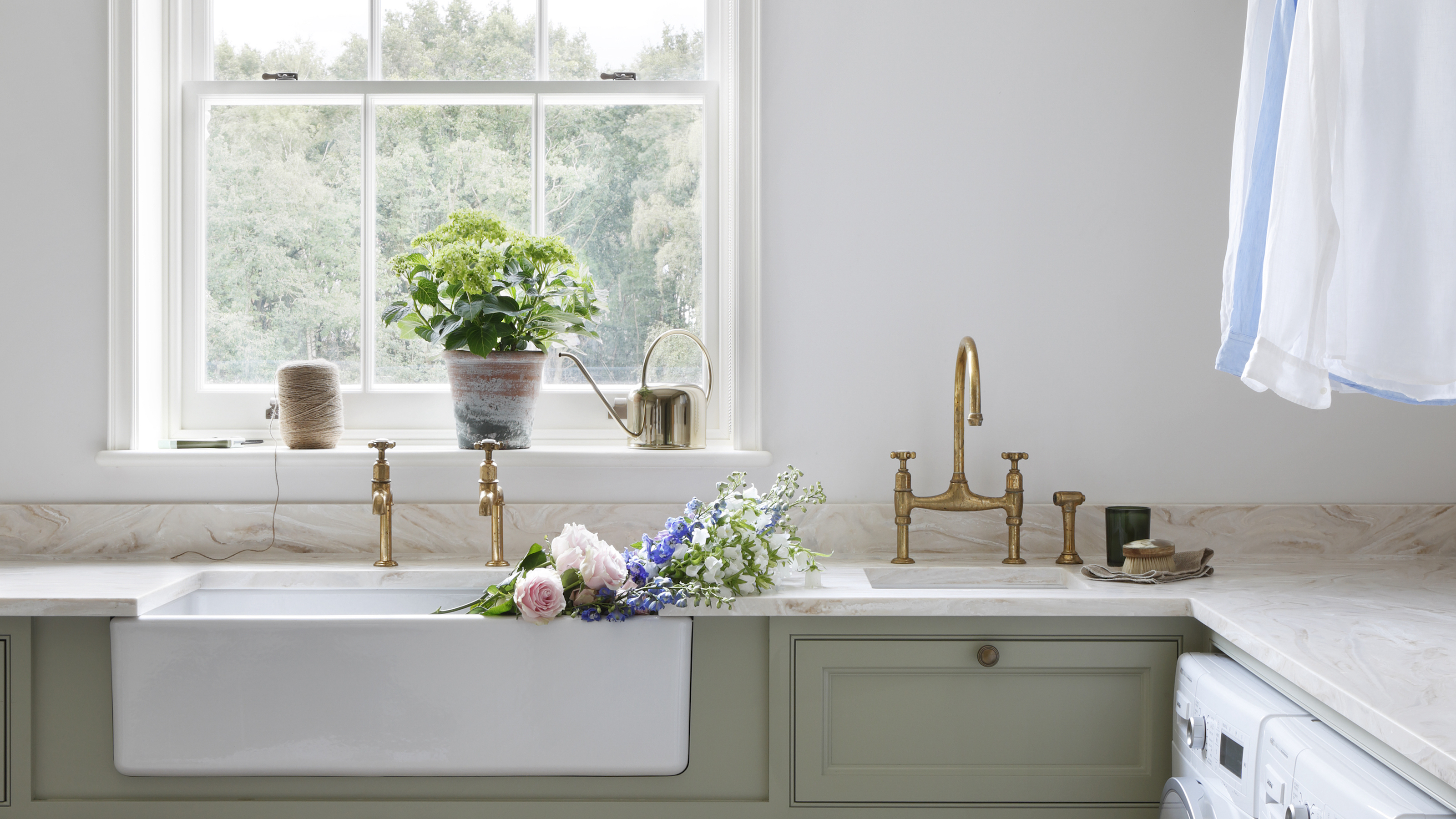
The best utility room sink ideas will hugely depend on the functionality of your space.
Cleaning and laundry rooms have very different requirements to messy boot rooms or areas used for food preparation and storage.
Getting utility room ideas for fixtures and fittings, like sinks and taps, sorted early on will aid the design process and help the build go smoothly.
Below, design experts detail how to decide which material, size and shape of sink is best for each type and size of utility room, and how to ensure the space is stylish as well as practical.
Why have a sink in a utility room?
“Incorporating a sink can completely change the functionality of a utility space," says Ruth Lavender, design expert at Benchmarx Kitchen & Joinery. "Not only can it offer a place to remove stubborn stains, but also act as a handwashing station when you come in from the garden, a place to clean muddy shoes, a bath for furry friends, and much more.
“Now more than ever, homeowners are looking for ways to create multi-functional spaces that work for the whole family. Something as simple as installing a sink can take your utility from a space to do washing and store things, to a room that can function as an extension to your kitchen space.
"When choosing a sink for a utility room, it’s important to consider what its main function will be, as this will determine the size and shape required, including whether a drying space needs to be incorporated."
1. Choose between an inset, under-mount or freestanding utility sink
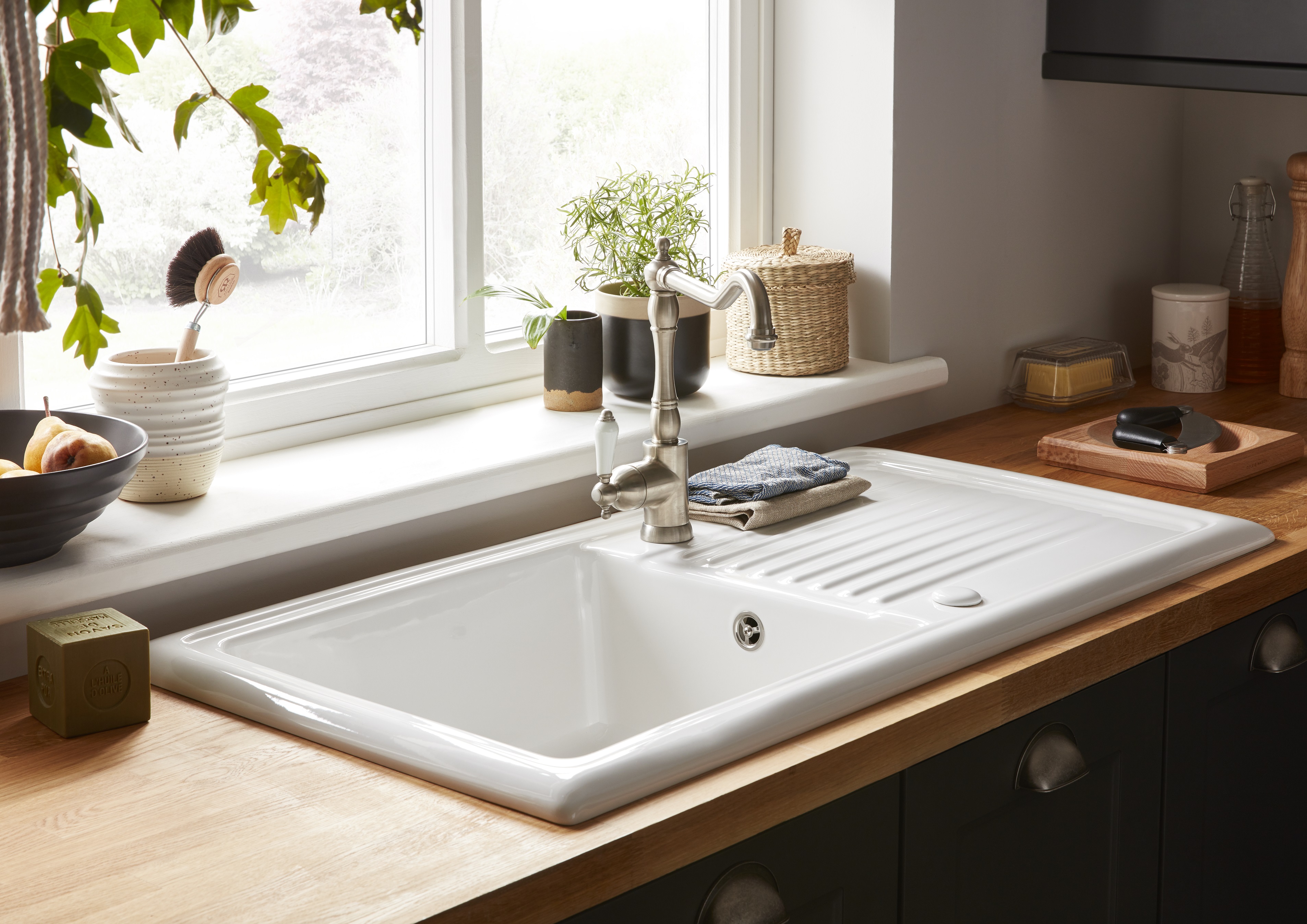
"When designing a utility room, laundry room or pantry, the positioning of the units needs to be confirmed before the first fix," advises Alex Main, director at The Main Company. The decision on your sink of preference will impact which style of units you are installing.
"The bowl of an inset sink (also called an overmount or sit-on sink) drops down into your worktop, with the rim overlapping and resting on the work surface," explains homes journalist Rebecca Foster. "An undermounted sink sits below the worktop. This allows for a streamlined aesthetic but make it more difficult to install."
Freestanding sinks are seen less in laundry, pantry or cleaning storage rooms but can complement boot rooms, cloakrooms and small utility rooms ideas quite nicely as they seem more luxurious for washing hands.
2. Choose a durable sink material
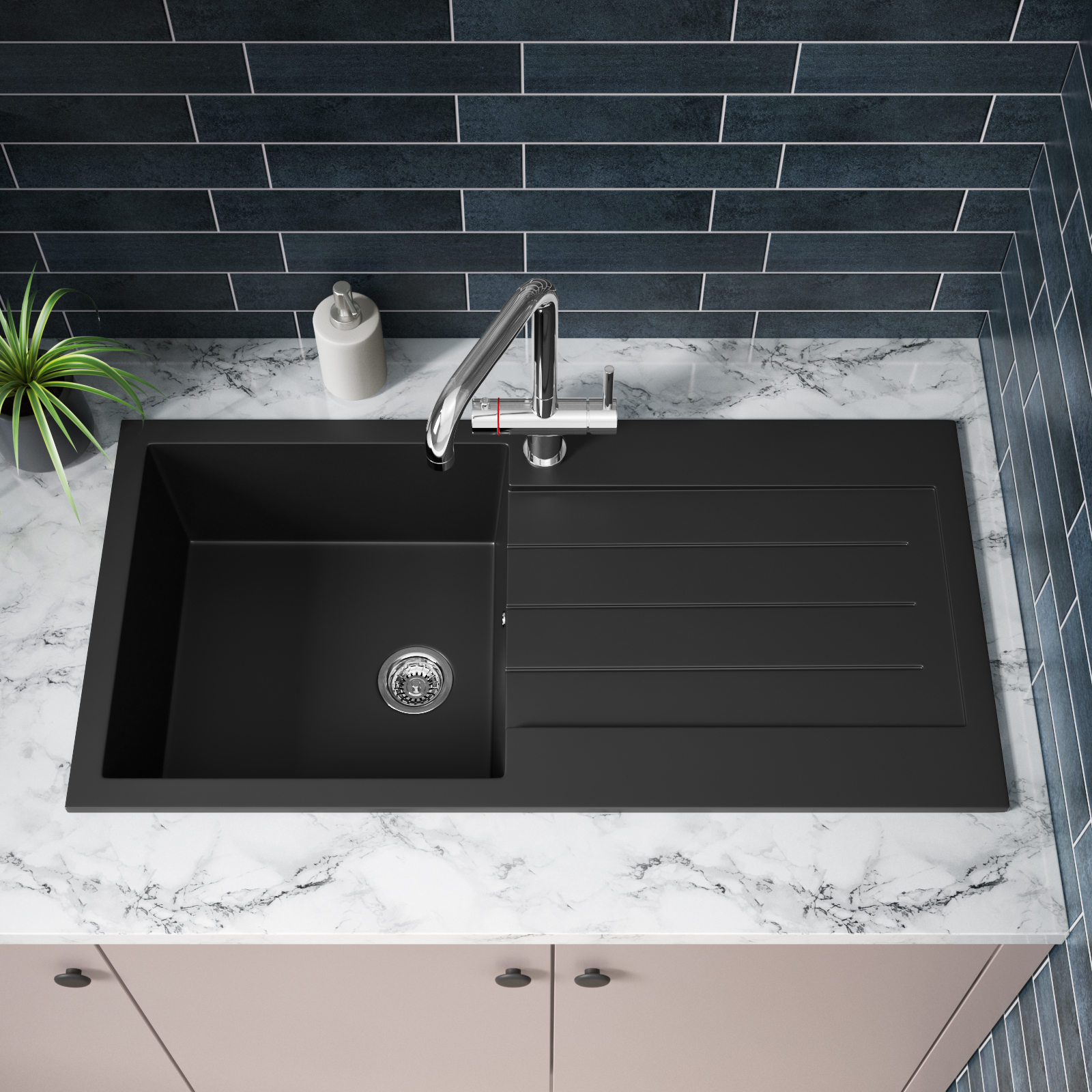
The material you choose for your sink should be suitable for the type of space you're creating.
“Composite sinks are made from a unique blend of silica particles, giving them a tough, practical finish," explains Ruth Lavender.
"These options have a striking finish that complements any modern utility design, with the added benefit of being impact resistant, easy to clean, scratch and stain resistant."
3. Go wide with a laundry room sink
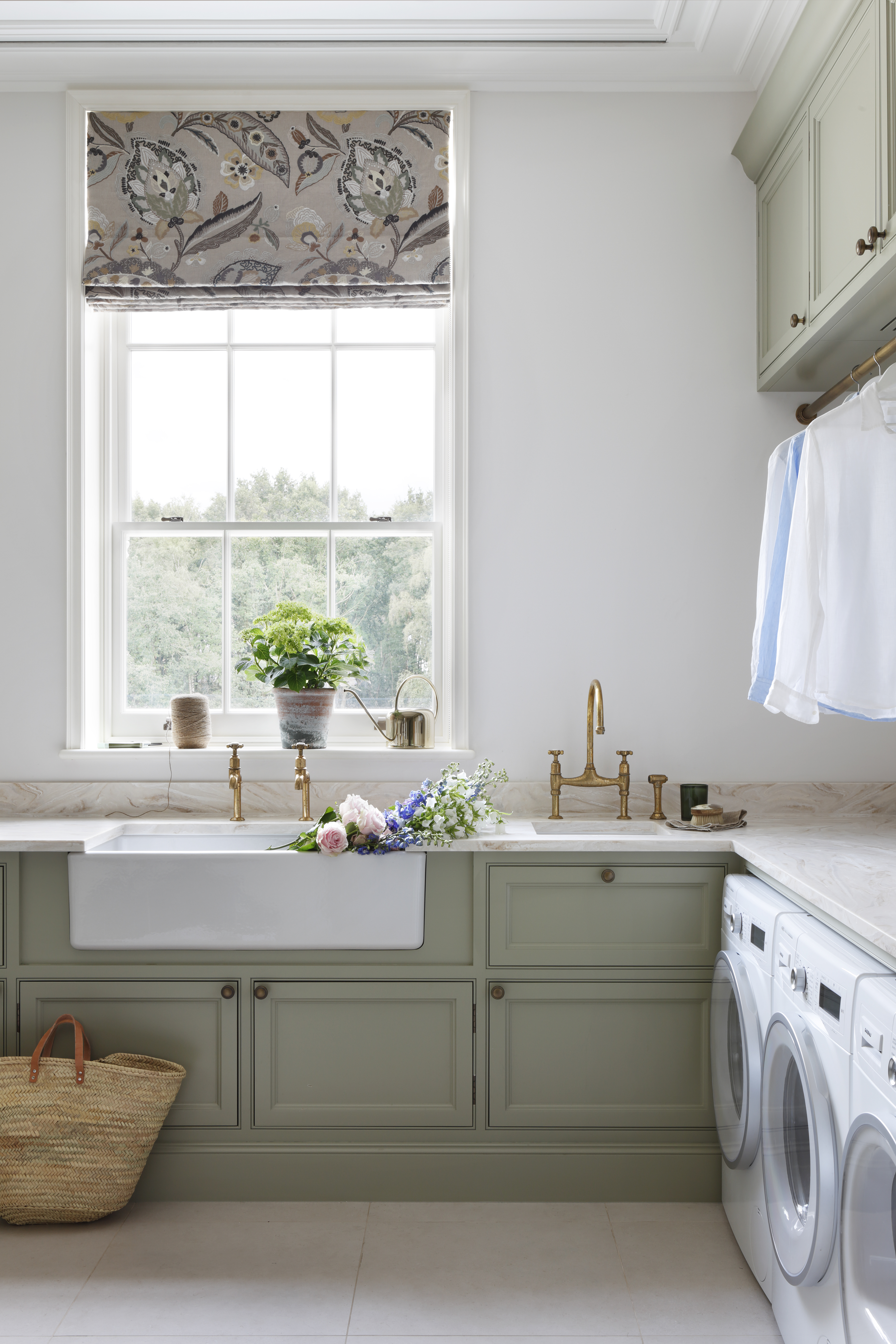
When designing a space that will be used primarily for washing clothing, install a wide sink (ideal for soaking items or washing multiple things) which is easy to keep clean with good lighting for spotting stains.
It would also serve the space to install a tap with a high neck or at the very least a swivel spout so if the user is scrubbing at soiled material it won't get in the way.
If you're going to be using the laundry room sink for other purposes, also consider installing a divided design, so one side can be used for washing hands, vegetables from the garden and other messy tasks to keep the other side clean for clothes.
Unsure which to choose? Take a look at our debate between utility rooms vs laundry rooms so you can design a space which will suit your lifestyle properly.
4. Use a sink to contribute to a classic farmhouse boot room style – or 'bootility'
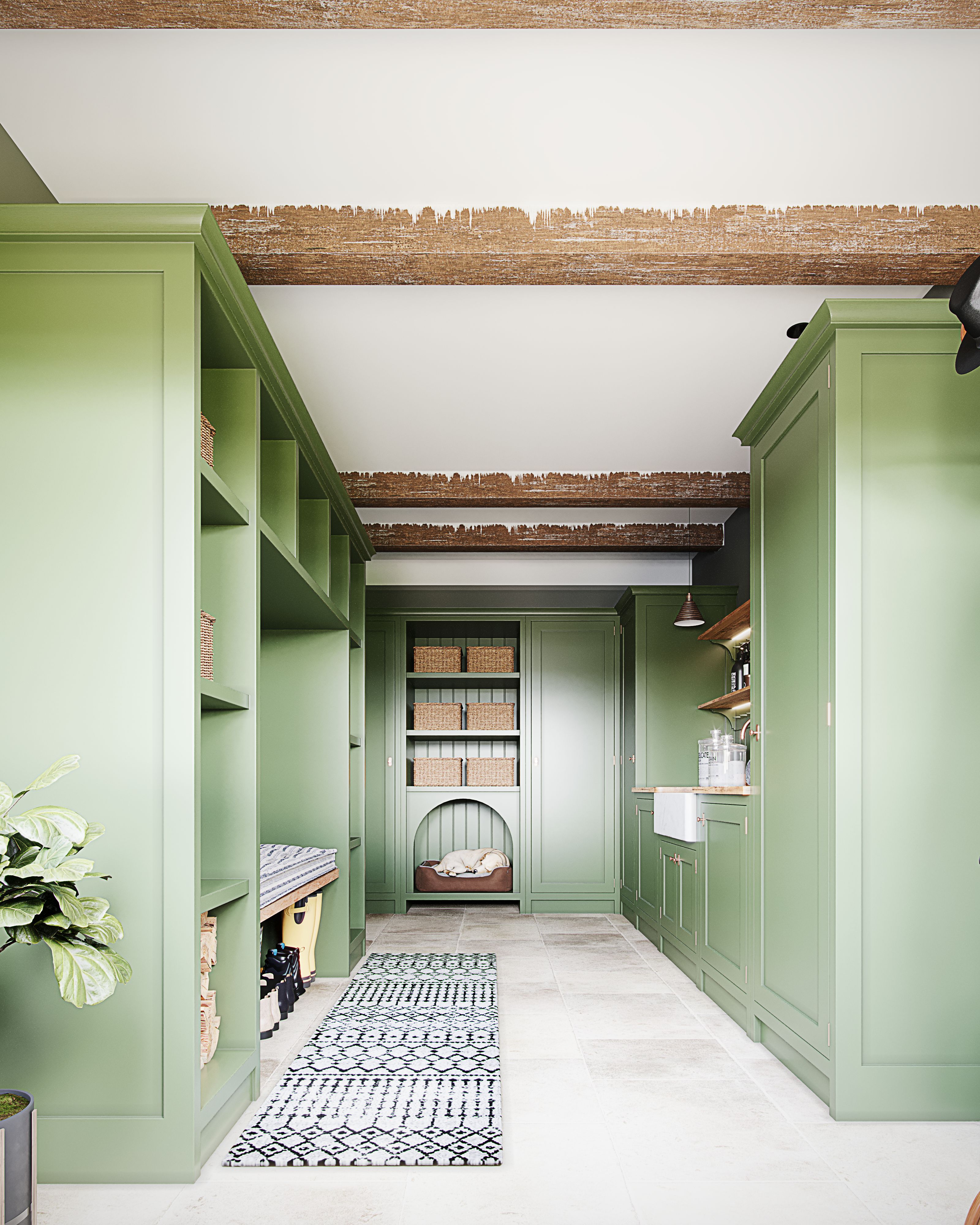
Boot room sinks don't need to be too grand, perhaps just big enough for hand washing after being out in the garden, but if you're planning a quintessential country 'bootility' – you might find a large, deep sink is better.
This stylish space incorporates loads of different boot room ideas — from a practical undermounted ceramic sink with cleaning products on nearby shelves, to open storage around a handy seating area.
“Ceramic sinks provide a hard, smooth surface that’s non-porous and highly heat and detergent resistant," explains Ruth Lavender. "They’re often deep, providing ample space for the task at hand. Ceramic is often a popular choice for those who desire a farmhouse or more traditional feel in their utility."
5. Incorporate storage under a utility sink
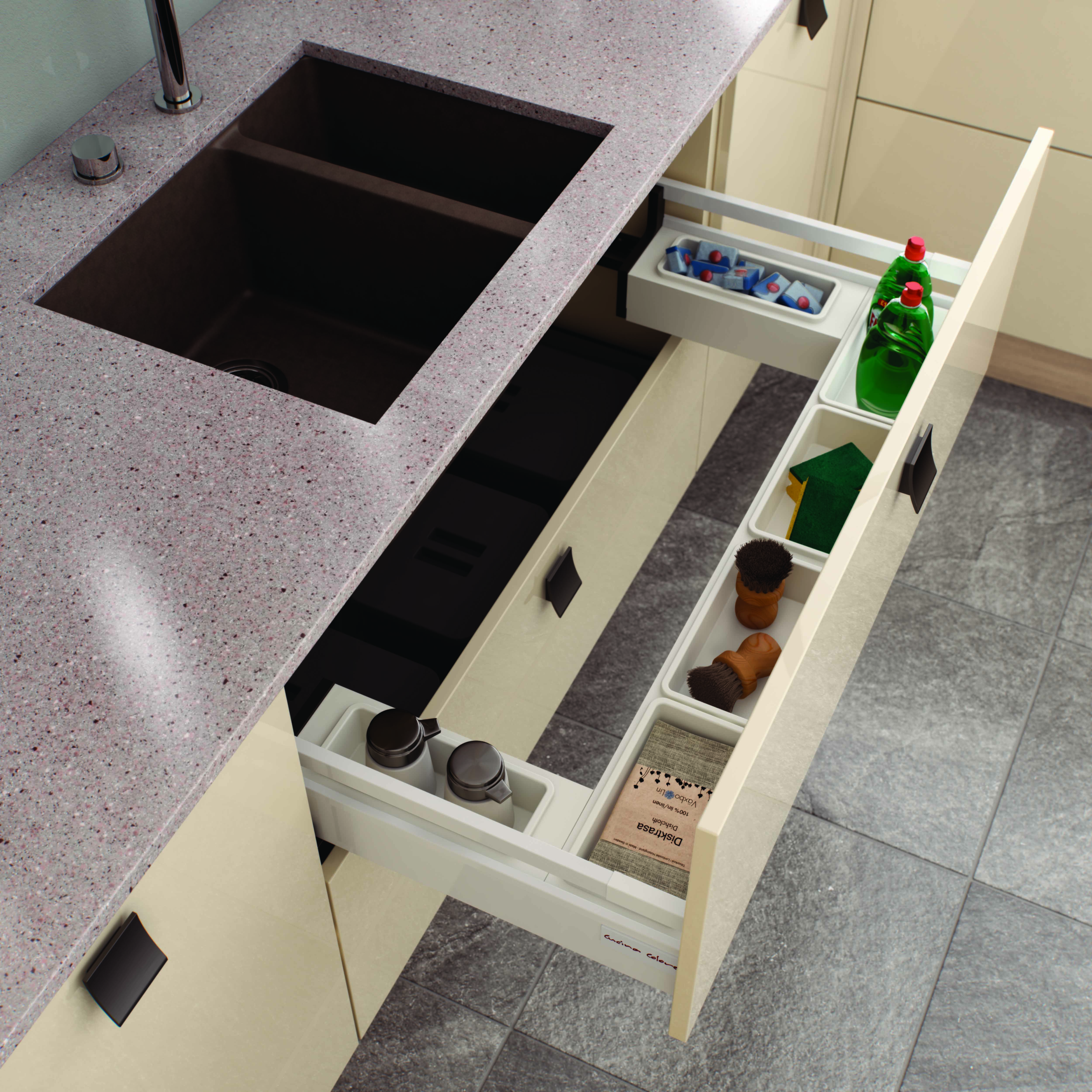
Get the most out of a sink space by including sneaky utility room storage ideas alongside the unit design.
This could be an under-sink cupboard with tidy organisation of cleaning products, stain removers or simply household extras like loo roll and cloths.
Here, every inch of space has been utilised by the sink cut-out drawer unit keeping washing equipment close to hand.
6. Go for a steel sink for flexibility
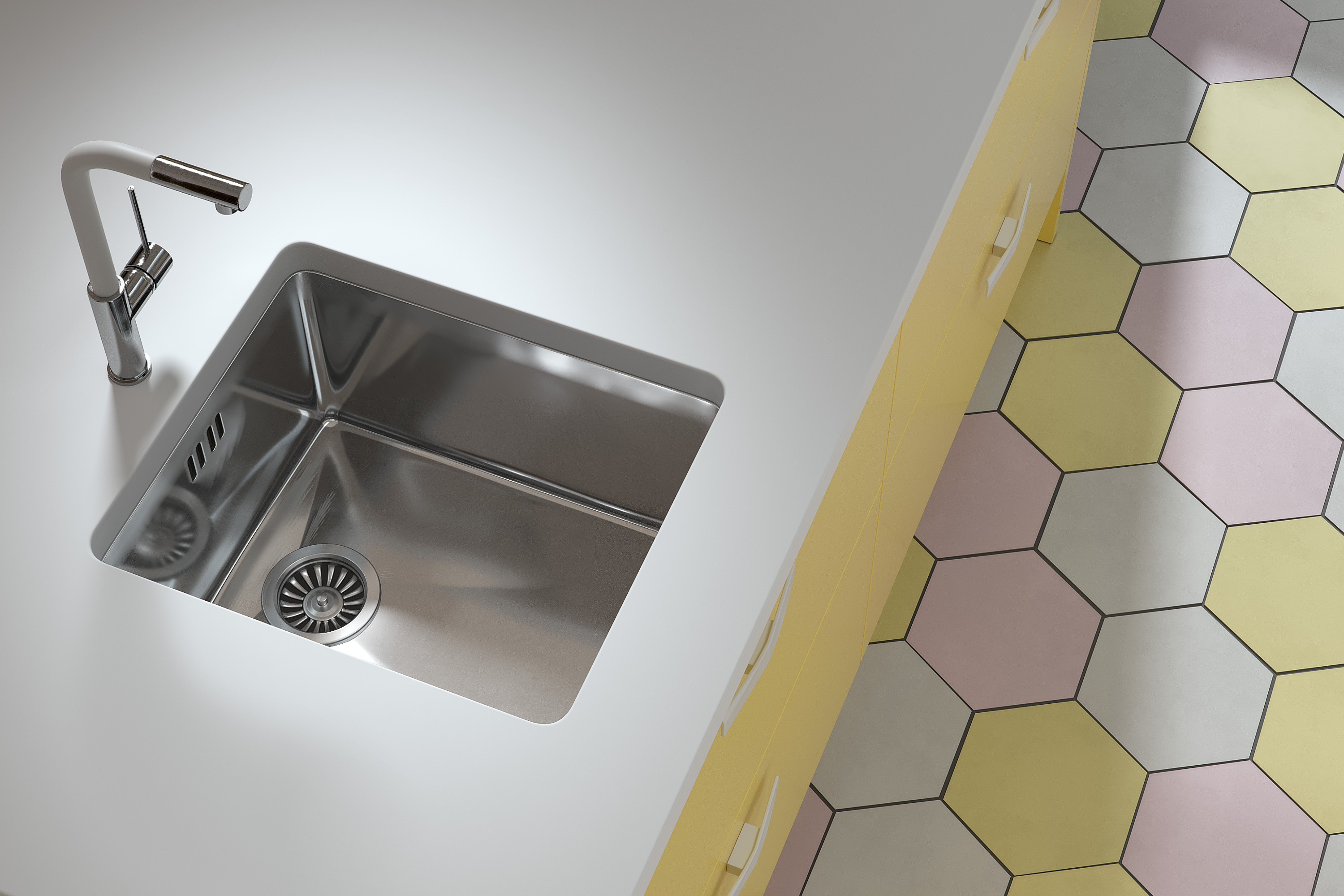
For utility rooms which need to be versatile for multiple uses, stainless steel sinks are a great choice. The thickness of the material is less important than in a kitchen, but still check the gauge before buying (the lower the better).
“Stainless steel sinks offer a wide choice of designs – from simple, classic styles to clean, contemporary lines," says Benchmarx's Ruth Lavender. "They’re durable, easy to clean and relatively cost effective."
As they're also available in a range of sizes, contrasting a large kitchen sink with a smaller utility sink can be helpful when cleaning vegetables as it will use less water.
7. Choose a versatile Belfast utility sink
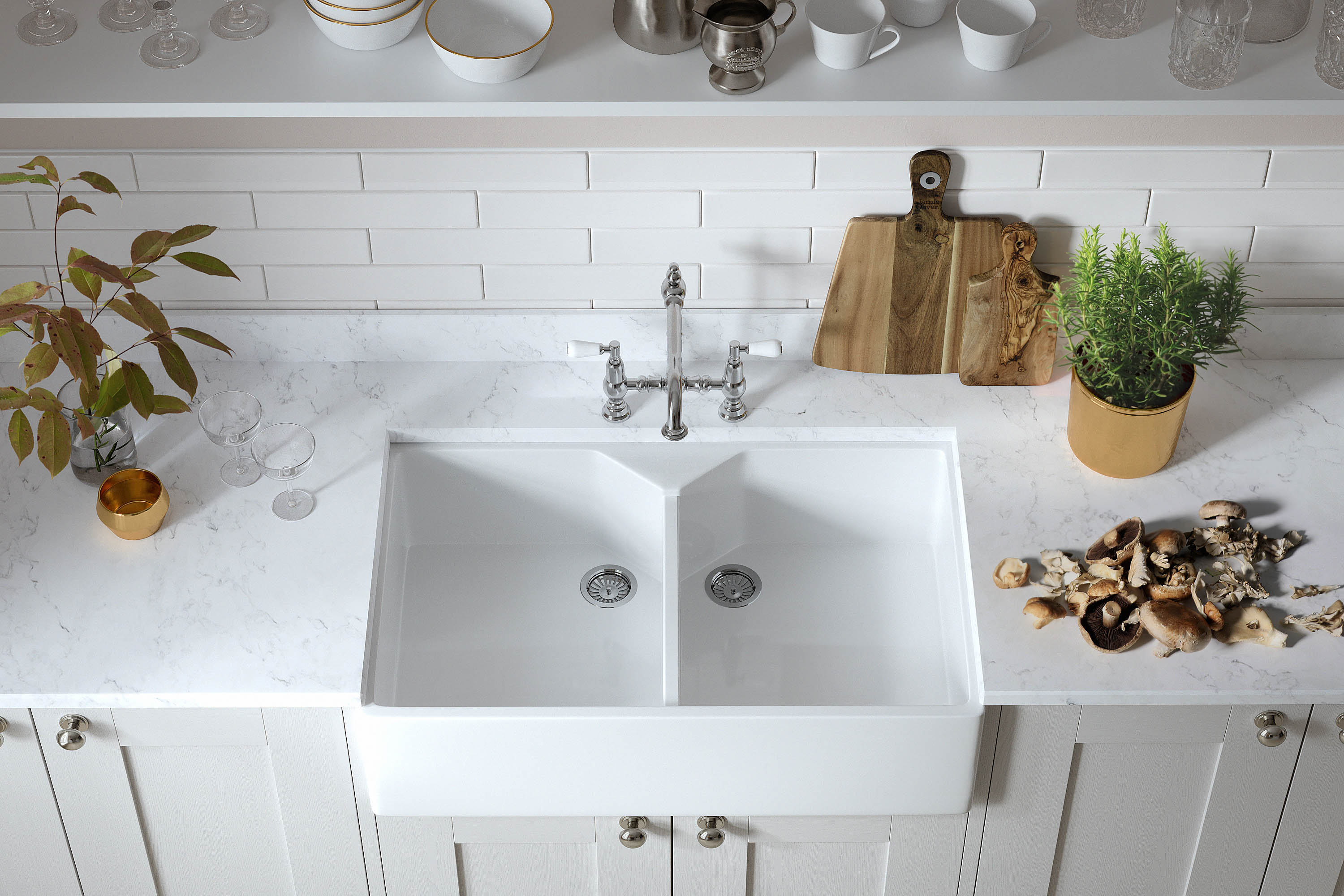
“If you’re carrying the same cabinetry from your kitchen through to the utility, you may want to choose a sink that matches your main kitchen for continuity," Ruth Lavender says. Generally, the best kitchen sinks are also the ones best suited to utilities so this option means one less decision to make for two spaces.
“A large, deep Belfast sink is always a good option for a utility room, as it can support multiple functions," adds Ruth. "You should also consider how much space you have available, whether you want a single or double bowl, and if you want the look to be timeless and traditional or minimalist and modern."
If you're also asking yourself 'does a utility room add value?' then adding in desirable features like a Belfast sink in a well-considered design will ensure that the space will be a great investment should you move house.
8. Install additional sinks for pets
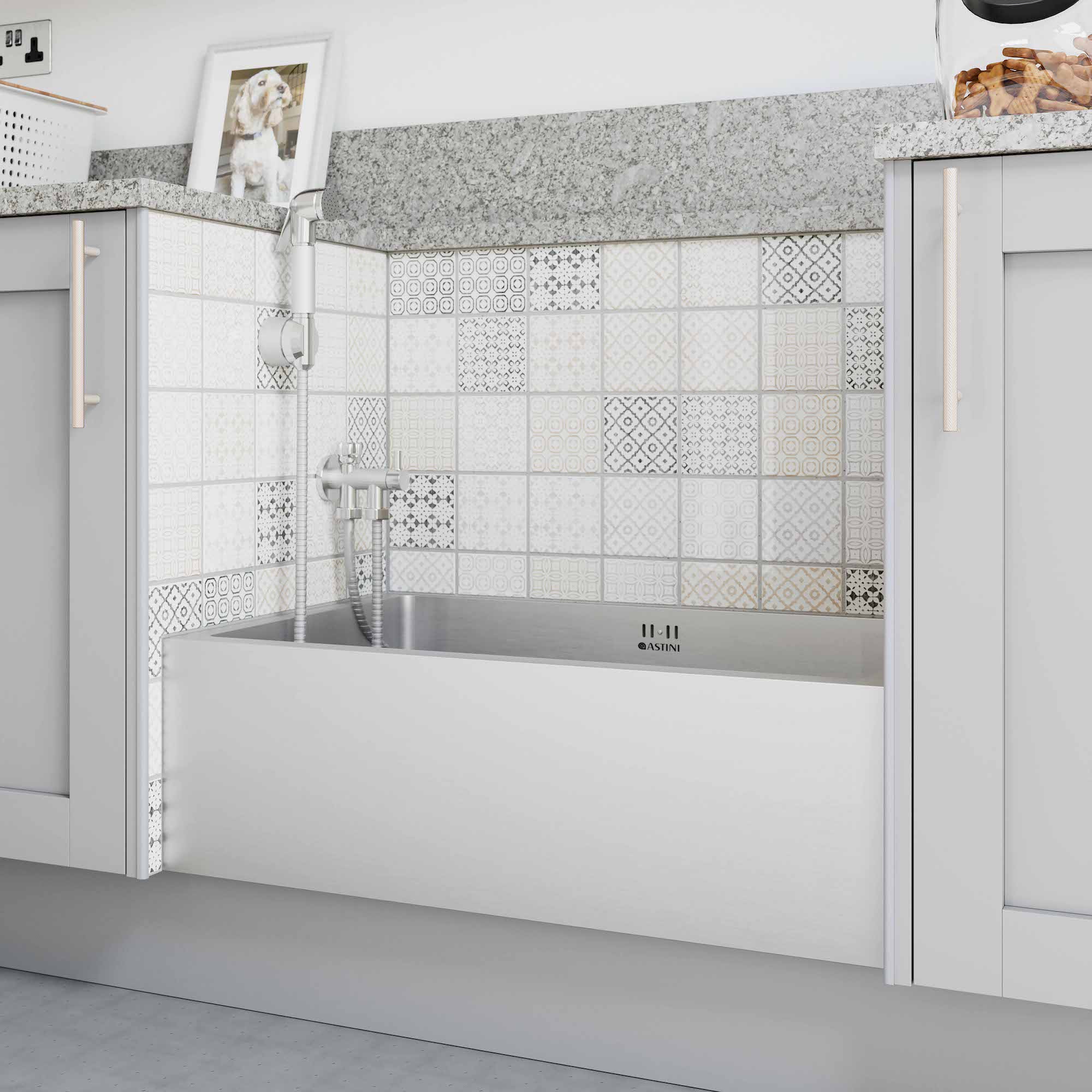
"A second sink is essential for a busy family, especially those with pets, as it can act as a dog bath," suggests Alex Main, from The Main Company. "Make sure it has a shower handset to avoid any mud being trampled through the home."
Another popular choice for those designing new utility rooms is to install a large sink or pet bath low to the floor for larger pets to be cleaned way from open plan kitchens or bathrooms.
9. Consider the space around the utility sink and other fixtures
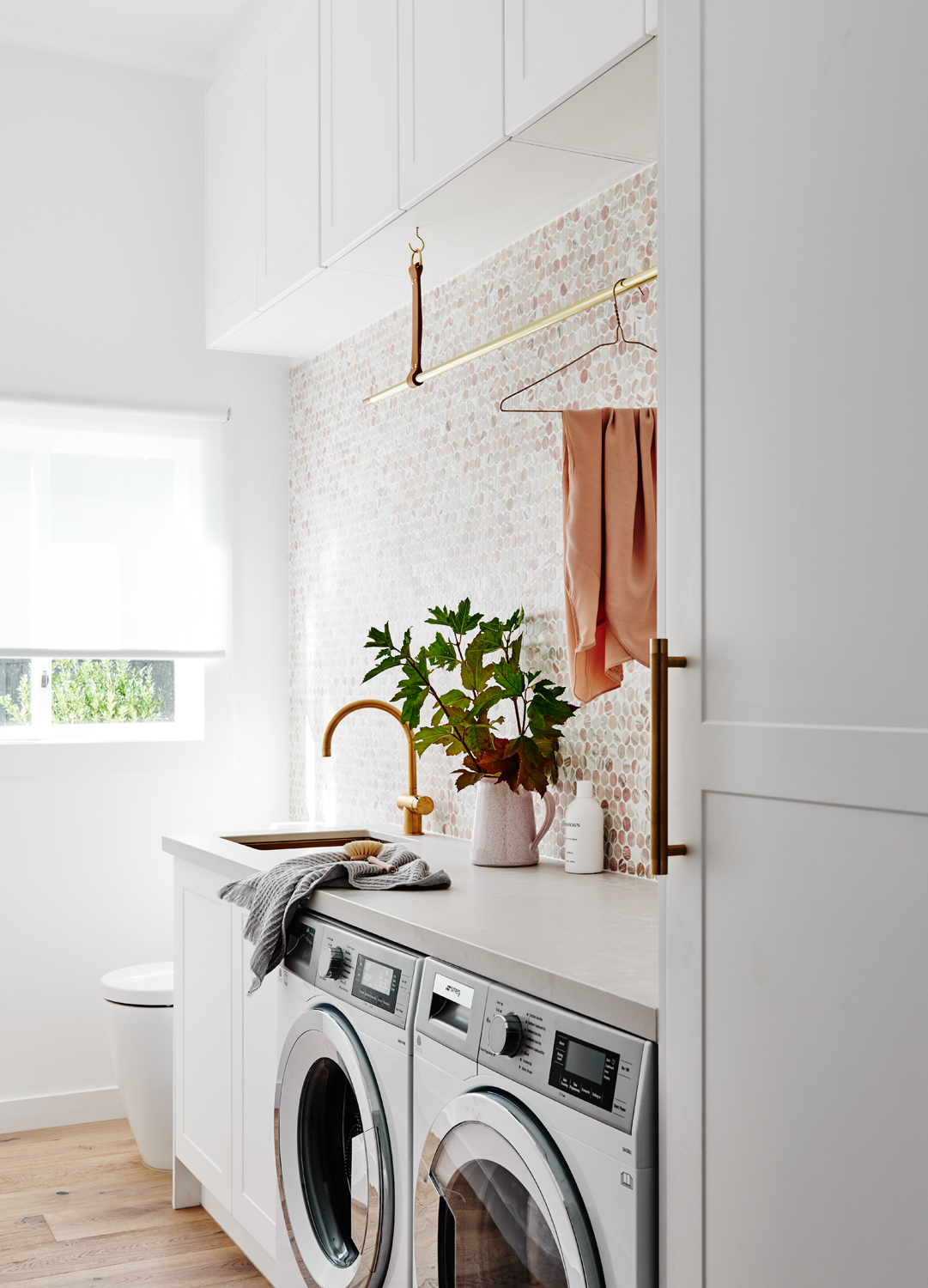
Just as in a kitchen design, choosing the size and shape of your sink is not where the decisions end for utility spaces.
"It is essential to have a splashback in the utility room, not only behind the sink, but also across the countertops," says a representative from Alusplash. "The utility is often busy and used for cleaning and maintenance tasks, so, having a splashback which is easy to wipe down will make the space easier to maintain and keep clean. An aluminium splashback is a super hygienic and low maintenance option as well as being sustainable and effortlessly stylish."
Taps are another consideration — do you need both hot and cold water? Is a simple mixer fine, or do you need a flexible nozzle as well?
If you will be soaking and working on getting rid of stains in a laundry room, a non-porus worktop is also essential in case pools of water are left.
10. Light a practical utility sink properly
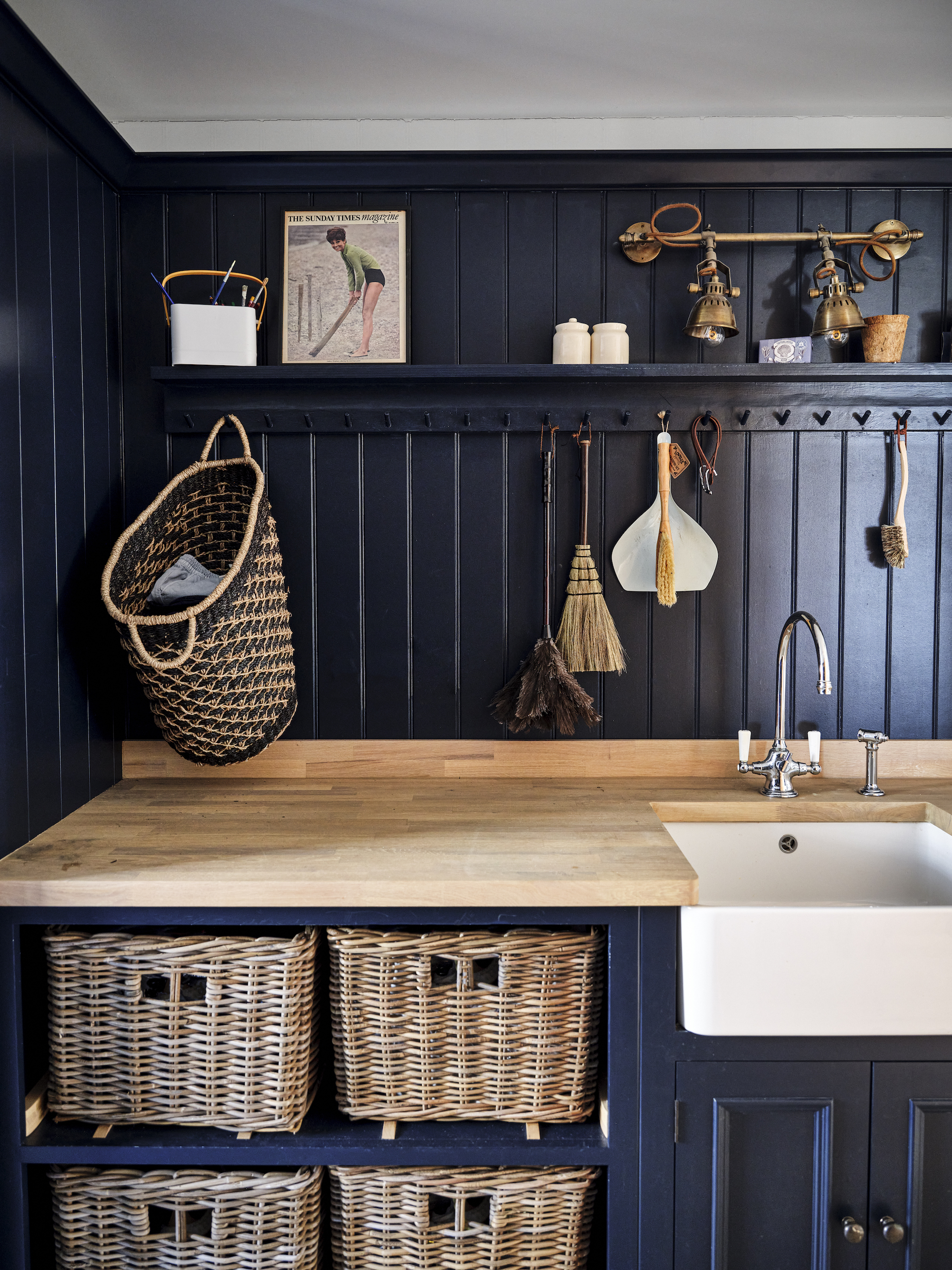
While most kitchen sinks tend to be near a window or on an island with strategic pendant or downlights, utilities can be pokey and awkward, so ensuring you have utility room lighting ideas around this area is key.
"When creating your lighting plan, ensure that you are taking things into consideration, such as not standing in your own shadow at the sink, as you won’t be able to see what you’re doing," adds David Amos, founder of Amos Lighting + Home. "If you want to incorporate wall lights by the sink for example, they need to be of the correct rating for wet areas."
The dark blue utility room above includes wall lights which can be adjusted depending on the task in the utility room.
How can I make a utility sink look nice?
The elements around the utility will make a utility sink look nice — from a good worktop, splashback, taps and decoration.
"It is important to think about your worktop material when designing around a utility sink," explains Alex Main of the Main Company. "Wood is a beautiful natural material with each piece revealing its own unique character. It can be sanded back if stained and is generally more softer to work with, however they tend to be more upkeep and prone to staining than granite or quartz worktops due to the porous nature of the material. If it’s a high moisture area, keep this in mind before deciding on your worktop."
What is the difference between a laundry sink and a utility sink?
While there is no official difference between a laundry sink and a utility sink, you may want to consider only using a laundry sink for clothing to reduce the risk of stains or grease being transferred after different uses.
Laundry sinks tend to be larger and deeper than normal utility sinks, to provide space for soaking larger items of clothing like jumpers, which might be washed by hand. A good plug system is also encouraged so you don't catch threads in the clothing.
Get the Homebuilding & Renovating Newsletter
Bring your dream home to life with expert advice, how to guides and design inspiration. Sign up for our newsletter and get two free tickets to a Homebuilding & Renovating Show near you.
Amy is an interiors and renovation journalist. She is the former Assistant Editor of Homebuilding & Renovating, where she worked between 2018 and 2023. She has also been an editor for Independent Advisor, where she looked after homes content, including topics such as solar panels.
She has an interest in sustainable building methods and always has her eye on the latest design ideas. Amy has also interviewed countless self builders, renovators and extenders about their experiences.
She has renovated a mid-century home, together with her partner, on a DIY basis, undertaking tasks from fitting a kitchen to laying flooring. She is currently embarking on an energy-efficient overhaul of a 1800s cottage in Somerset.

